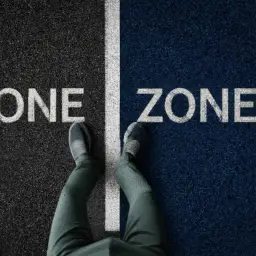Do you ever feel like giving up when faced with challenging situations in life? Perhaps you struggle with self-doubt or lack the motivation to push through obstacles. The good news is that you can develop the skills of grit and mindset to overcome these challenges and achieve success in all areas of your life.
Grit and mindset are two concepts that have gained increasing attention in recent years, particularly in the fields of psychology and education. Grit refers to the ability to persevere and maintain passion and perseverance towards long-term goals, despite setbacks or obstacles.
Mindset, on the other hand, refers to the belief that one’s abilities and qualities can be developed through hard work and dedication. In this article, we will explore the importance of developing grit and mindset, as well as provide practical tips for cultivating these skills in your daily life.
Key Takeaways
- Developing a growth mindset is essential for developing grit and involves embracing challenges as opportunities for growth.
- Practicing perseverance is key to achieving long-term goals and requires consistency and discipline.
- Embracing failure and learning from mistakes is crucial for becoming successful and is a natural part of the learning process.
- Building resilience and coping skills better equip oneself to handle any challenges in life.
Understanding the Concepts of Grit and Mindset
You gotta understand the concepts of grit and mindset if you wanna push past your limits and conquer any challenge that comes your way.
Developing resilience is one of the keys to having grit. It means being able to bounce back from setbacks and failures, and learning from them. Resilience is not something you’re born with, but rather something you can cultivate through practice and perseverance. It’s about developing a growth mindset, which means seeing challenges as opportunities for growth and not as roadblocks.
Fostering determination is the other aspect of grit. It’s about having a strong sense of purpose and being willing to put in the effort to achieve your goals. Determination is not about being stubborn or refusing to change course, but rather about being adaptable and persevering in the face of obstacles. It requires focusing on what you can control and not giving up when things get tough.
With a combination of resilience and determination, you can develop the grit you need to overcome any challenge that comes your way.
Importance of Developing Grit and Mindset
When facing difficult situations, it’s easy to feel discouraged and overwhelmed. But by cultivating a determined and flexible attitude, it’s possible to push through obstacles and come out stronger on the other side.
Developing resilience and mental toughness is crucial in overcoming challenges in life. These skills allow you to bounce back from setbacks and keep going despite the odds.
In order to develop grit and mindset, it’s important to adopt a growth-oriented mindset. This means embracing challenges as opportunities for growth and learning, rather than seeing them as insurmountable obstacles.
Through deliberate practice and a willingness to fail and learn from mistakes, you can build the mental strength needed to tackle any challenge that comes your way. With time and effort, you can develop the resilience and mental toughness necessary to thrive in the face of adversity.
Cultivating Grit
If you want to cultivate grit, you need to start by setting long-term goals. These goals will give you something to work towards and help you stay motivated.
But it’s not just about setting goals. You also need to practice perseverance, even when you face obstacles or setbacks.
And don’t forget to embrace failure and learn from your mistakes. These are all important steps towards cultivating grit and achieving your goals.
Setting Long-Term Goals
Achieving success in life requires setting long-term goals and staying committed to them, no matter the obstacles that may arise. When setting goals, it’s important to make them realistic, achievable, and measurable.
Creating action plans that break down your long-term goals into smaller, manageable steps can help you stay on track and motivated. To set realistic goals, start by identifying what you want to achieve in the long-term. Then, break down your goal into smaller, achievable steps that you can take to get there.
For example, if your long-term goal is to become a successful entrepreneur, your smaller goals could include developing a business plan, networking with potential investors, and launching your product or service.
Once you have set your goals, it’s important to create action plans that outline the steps you will take to achieve them. This can include setting deadlines, identifying resources and support systems, and tracking your progress.
By breaking down your long-term goals into smaller, achievable steps and creating action plans to help you stay on track, you can overcome challenges and achieve success in all areas of your life.
Practicing Perseverance
Don’t give up, even when it gets tough – practicing perseverance is key to achieving your long-term goals and experiencing the satisfaction of success.
Practicing consistency and developing discipline are essential to building perseverance. Consistency means showing up every day and putting in the work, even when you don’t feel like it. It means committing to your goals and taking small steps towards them every single day.
Developing discipline means building the mental toughness to push through challenges and setbacks. It means staying focused on your goals in the face of distractions and obstacles.
When you practice perseverance, you develop a mindset of resilience that will help you overcome any challenge that comes your way. Remember, success is not just about talent or luck – it’s about putting in the hard work and commitment to achieve your dreams.
Embracing Failure and Learning from Mistakes
Embracing failure and learning from mistakes is crucial to becoming successful. It’s important to recognize that making mistakes is a natural part of the learning process.
When you can accept that failure is not a reflection of your worth or intelligence, you can approach challenges with a growth mindset. This means acknowledging your mistakes, analyzing what went wrong, and using that information to improve your approach in the future.
Learning from failures also means embracing imperfection. Nobody’s perfect, and striving for perfection can lead to a fear of failure that holds you back. Instead, focus on progress and improvement.
Celebrate small successes along the way, and use setbacks as opportunities to learn and grow. Remember, success is not about never failing – it’s about getting back up each time you fall and continuing to move forward.
Cultivating a Growth Mindset
By adopting a growth mindset, you can envision yourself as a tree with roots that stretch deep into the ground and branches that reach towards the sky, constantly growing and adapting to new challenges. This mindset is about embracing the idea that your abilities and intelligence can be developed through hard work, persistence, and a willingness to learn from mistakes. With a growth mindset, you are more likely to take on challenges and view them as opportunities for growth, rather than obstacles that hold you back.
To cultivate a growth mindset, it’s important to focus on developing resilience and adopting a positive attitude towards learning and growth. The following table highlights some key differences between a fixed mindset and a growth mindset, and can help you identify areas where you can shift your thinking towards a more growth-oriented perspective. By embracing the principles of a growth mindset and developing your resilience, you can overcome challenges and achieve success in all areas of your life.
| Fixed Mindset | Growth Mindset | |||
|---|---|---|---|---|
| Avoids challenges | Embraces challenges | |||
| Gives up easily | Persists in the face of obstacles | |||
| Views effort as fruitless | Sees effort as necessary for growth | |||
| Ignores feedback | Learns from criticism and feedback | Feels threatened by the success of others | Is inspired by the success of others and uses it as a source of motivation |
Applying Grit and Mindset in Real-Life Situations
Now that you understand the importance of grit and mindset, it’s time to apply these concepts in real-life situations.
Whether you’re looking to improve your professional development, personal development, or academic pursuits, cultivating a growth mindset and developing grit will help you overcome any obstacle that comes your way.
By approaching challenges with a positive attitude and a willingness to learn and grow, you can achieve your goals and become the best version of yourself.
Professional Development
You’ll find that improving your grit and mindset is essential for advancing your professional development.
In today’s competitive job market, networking opportunities and self-promotion strategies are crucial for success. However, it takes more than just knowing how to network and promote yourself to climb the career ladder.
You need to have a resilient attitude and a growth mindset to overcome obstacles and challenges that come your way. Having grit and a growth mindset enables you to embrace challenges as opportunities for growth and learning.
Instead of being discouraged by setbacks, you’ll be motivated to keep pushing forward. You’ll also be more adaptable to change and better equipped to handle the demands of a fast-paced work environment.
By developing your mindset and grit, you’ll not only advance your professional development but also enhance your overall well-being and resilience in life.
Personal Development
Improving your personal development is a continuous journey that involves exploring your passions and interests, identifying your strengths and weaknesses, and setting achievable goals to enhance your skills and knowledge. Self reflection techniques are essential in this process, as they allow you to gain a deeper understanding of yourself and your motivations. By taking the time to reflect on your experiences and emotions, you can identify patterns in your behavior and thought processes that may be holding you back. This awareness can then be used to develop strategies to overcome challenges and build resilience.
Another important aspect of personal development is building self confidence. When you believe in yourself and your abilities, you are more likely to take risks and pursue your goals with determination. One way to build self confidence is through setting achievable goals and celebrating your successes. This helps to reinforce your belief in your abilities and motivates you to continue striving towards your aspirations. Additionally, surrounding yourself with supportive and encouraging people can also help to boost your self confidence and provide a network of support as you navigate your personal development journey.
| Self Reflection Techniques | Building Self Confidence | Strategies for Improvement | |
|---|---|---|---|
| Journaling | Positive Self-Talk | Setting Achievable Goals | |
| Meditation | Celebrating Successes | Seeking Supportive Relationships | |
| Mindfulness | Identifying Personal Strengths | Continuously Learning and Growing | |
| Creative Expression | Facing Fears and Taking Risks | Embracing Challenges as Opportunities | |
| Seeking Feedback | Challenging Negative Thoughts | Practicing Gratitude | …and Cultivating a Positive Mindset. |
Academic Pursuits
Enhancing your academic pursuits requires a strong work ethic and a dedication to learning. Your study habits and time management skills are crucial in achieving your academic goals. It is important to prioritize your tasks and create a schedule that allows enough time for studying, completing assignments, and reviewing class materials.
You can also try breaking down larger tasks into smaller, more manageable ones to avoid feeling overwhelmed. Motivation and self-discipline are also key factors in academic success. It can be easy to lose interest or become distracted, but it’s important to stay motivated and focused on your goals.
One way to do this is by setting achievable goals and rewarding yourself when you reach them. Additionally, practicing self-discipline by avoiding procrastination and staying committed to your schedule can help you stay on track and achieve your academic aspirations.
With the right mindset and habits, you can excel in your academic pursuits and achieve your desired results.
Overcoming Challenges with Grit and Mindset
You can overcome any obstacle with the right strategies and mindset. Building resilience and coping skills can help you bounce back from setbacks and keep pushing forward.
Celebrating small wins and progress can give you the motivation to continue on your journey towards success.
Strategies for Overcoming Obstacles
When faced with obstacles, it’s important to have a game plan and take action to overcome them. Developing resilience is key to bouncing back from setbacks. Resilience is the ability to adapt to challenging situations, and it’s a skill that can be developed over time.
One way to build resilience is to focus on developing coping mechanisms. Coping mechanisms are strategies you can use to manage stress and anxiety when faced with difficult situations. Examples of coping mechanisms include deep breathing, meditation, exercise, and talking to a trusted friend or family member.
Another strategy for overcoming obstacles is to focus on the things you can control. When you’re faced with a challenge, it’s easy to feel overwhelmed and powerless. However, by focusing on the things within your control, you can regain a sense of agency and take action to overcome the obstacle.
For example, if you’re dealing with a difficult coworker, you can’t control their behavior, but you can control your own response to them. By focusing on your own behavior and reactions, you can find ways to work around the obstacle and achieve your goals.
Building Resilience and Coping Skills
Developing resilience and coping skills is essential for anyone looking to overcome obstacles and thrive in difficult situations. Resilience building activities can help you bounce back from setbacks and develop a more positive outlook on life. Some of these activities can include practicing gratitude, engaging in physical exercise, and setting achievable goals. Gratitude can help you appreciate the good things in life, while physical exercise can help you release tension and reduce stress. Setting achievable goals can also help you build your confidence and sense of accomplishment.
Table:
| Resilience Building Activities | Coping Mechanisms for Tough Times |
|---|---|
| Practicing gratitude | Seeking social support |
| Engaging in physical exercise | Engaging in self-care activities |
| Setting achievable goals | Practicing mindfulness |
In addition to resilience building activities, it is also important to develop coping mechanisms for tough times. Coping mechanisms can help you manage stress and navigate difficult situations with more ease. Seeking social support, engaging in self-care activities, and practicing mindfulness are all effective coping mechanisms. Seeking social support can help you feel less alone during tough times, while engaging in self-care activities can help you prioritize your mental and emotional well-being. Practicing mindfulness can also help you stay present and focused on the present moment, rather than getting lost in worry or anxiety. By developing these resilience building activities and coping mechanisms, you can better equip yourself to handle any challenges life may throw your way.
Celebrating Small Wins and Progress
Take a moment to celebrate your progress, no matter how small, and acknowledge how far you’ve come. Celebrating progress is an essential part of staying motivated. It helps you maintain a positive attitude and encourages you to keep moving forward, even when faced with challenges.
When you celebrate your progress, you remind yourself that you’re capable of achieving your goals, and that every step you take brings you closer to success.
To celebrate your progress, you can set small milestones and reward yourself each time you achieve them. For example, if your goal is to learn a new language, you can celebrate every time you master a new phrase or word. Or, if your goal is to get fit, you can reward yourself every time you reach a new fitness level.
Celebrating progress not only helps you stay motivated, but it also makes the journey towards your goal more enjoyable and fulfilling. Remember, every small win counts, and each one is a step towards achieving your dreams.
Frequently Asked Questions
What are some common misconceptions about grit and mindset?
You might have heard some misconceptions about grit and mindset. Let’s debunk them.
One common misconception is that grit and mindset are innate traits that some people are born with and others aren’t. This isn’t true. Grit and mindset can be developed and strengthened over time with intentional effort.
Another misconception is that failure is to be avoided at all costs. However, the importance of embracing failure in developing grit and mindset cannot be overstated. Failure isn’t a sign of weakness, but an opportunity to learn and grow.
By reframing failure as a necessary step towards success, you can develop the resilience and determination needed to overcome challenges in life.
How can individuals determine if they have a fixed or growth mindset?
To determine if you have a fixed or growth mindset, it’s important to understand the differences and benefits of each.
A fixed mindset is the belief that your abilities, intelligence, and talents are fixed traits that cannot be changed.
On the other hand, a growth mindset is the belief that your abilities can be developed through hard work, dedication, and learning from failures.
To cultivate a growth mindset, you can start by embracing challenges, seeking out new experiences, and focusing on the process rather than just the outcome.
Additionally, it’s important to embrace failure as a learning opportunity and to surround yourself with people who have a growth mindset.
By adopting these practical strategies, you can shift your mindset towards growth and unlock your full potential.
Can grit and mindset be developed later in life, or is it something that must be ingrained from childhood?
Yes, grit and mindset can definitely be developed later in life. Developing grit is about cultivating perseverance, passion, and resilience, and these are skills that can be honed at any age. Similarly, adopting a growth mindset is about believing that you can improve, learn, and develop new abilities, rather than being limited by fixed traits.
The benefits of a growth mindset go beyond just overcoming challenges; it can lead to greater creativity, innovation, and success in all areas of life. Teaching grit and mindset in adulthood may require different strategies than in childhood, but it’s certainly possible. Some strategies for success may include setting achievable goals, seeking out challenges, and cultivating a sense of purpose and meaning in one’s work or life.
Are there any potential drawbacks to having too much grit or an overly positive mindset?
When it comes to developing grit and a positive mindset, it’s important to find balance. While having determination and a can-do attitude can be incredibly helpful in achieving your goals, it’s also possible to have too much of a good thing.
Balancing grit means being aware of your limits and taking breaks when necessary to avoid burnout. Similarly, a positive mindset can help you navigate setbacks, but it’s important to avoid complacency and continue pushing yourself to grow and improve.
Ultimately, finding the right balance is key to achieving success in all areas of your life.
How can individuals maintain motivation and perseverance when faced with long-term challenges or setbacks?
When faced with long-term challenges or setbacks, it can be difficult to maintain motivation and perseverance. However, developing coping mechanisms and seeking support can help you stay on track.
Coping mechanisms can include setting small goals, breaking down the challenge into manageable steps, and practicing self-care.
Seeking support can come in the form of talking to a trusted friend or family member, joining a support group, or seeking the help of a professional therapist.
By utilizing these tools, you can stay motivated and persevere through even the toughest challenges.
Conclusion
Congratulations! You’ve reached the end of this article about grit and mindset. You now understand the importance of developing grit and a growth mindset, and how they can help you overcome challenges in life.
Remember, cultivating grit takes time and effort, but with determination and perseverance, you can develop the resilience needed to face any obstacle that comes your way.
Similarly, adopting a growth mindset means embracing challenges and seeing them as opportunities to learn and grow.
By applying the concepts of grit and mindset in your daily life, you can take on challenges with confidence, overcome setbacks, and achieve your goals.
So, keep pushing yourself, believe in your abilities, and never give up. With grit and a growth mindset, you can conquer anything that comes your way.
















































































































